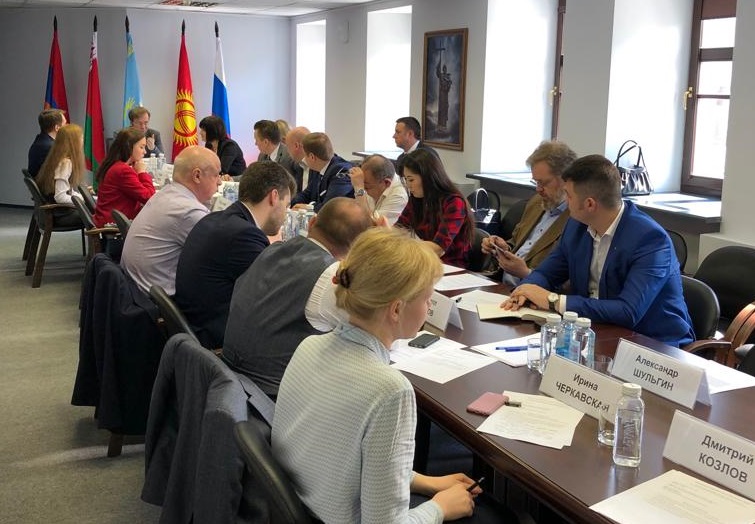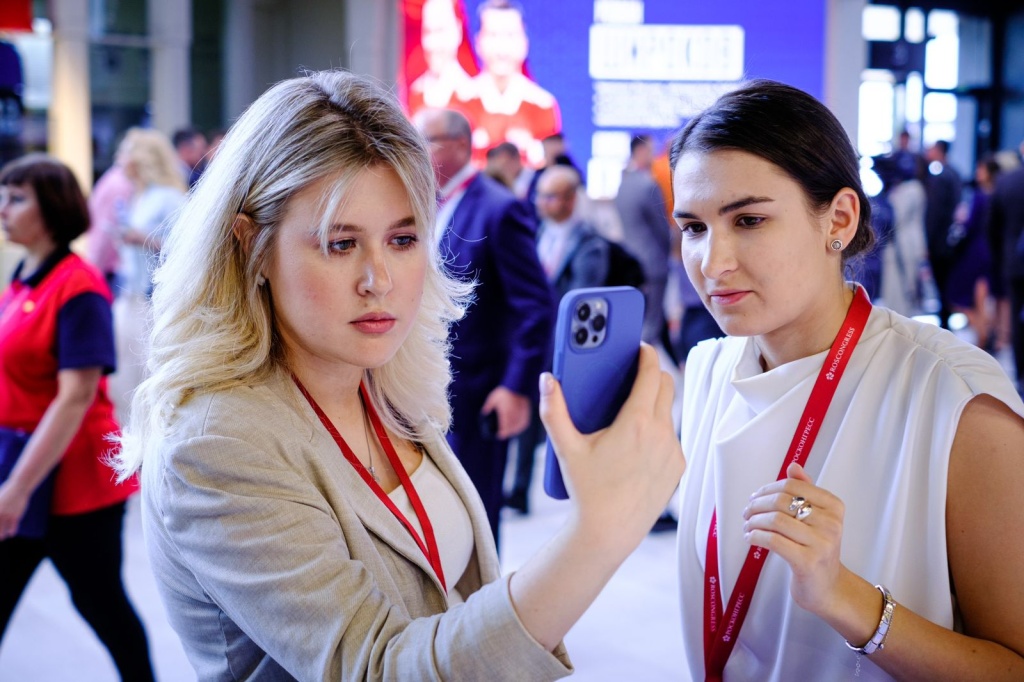
Use of Unified Electronic Trading Platform in the EAEU as a Tool for Implementing the Union’s Digital Agenda will be discussed at SPIEF-2019
The Roscongress Foundation and the Eurasian Integration Research Centre held a meeting of the expert roundtable ‘Unified Electronic Trading Platform in the EAEU as a Tool for Implementing the Union’s Digital Agenda’ in Moscow as part of work to prepare for topical discussion issues at major forums.
The discussion was attended by Member of the Collegium (Minister) in charge of Internal Markets, Information Support, Information and Communication Technologies of the Eurasian Economic Commission Karine Minasyan, Coordinator of the Digital Agenda of the Eurasian Economic Union Alexander Petrov, Public Representative of the Russian President’s Commissioner for the Protection of Entrepreneurs’ Rights on Digital Economy Affairs Ilya Dimitrov, Adviser to the Russian Minister of Economic Development Yulia Kim, President of the Association of Internet Trade Companies Artem Sokolov, Chairman of the Executive Board of the Council for the Development of Foreign Trade and International Economic Relations Maxim Chereshnev, Deputy Director General of the Moscow Export Center Alexey Kolomeychuk, Chairman of the Executive Board of the International Foundation of Technology and Investments Yury Cherches, Executive Director of the Eurasian Integration Research Center Kirill Orlov, Roscongress Foundation Deputy CEO Armen Khachatryan, and others. The group was moderated by Director of the Economic Programmes Service of the Russia 24 TV Channel Alexey Bobrovsky.
During the discussion, representatives of Russian e-commerce companies and exporter companies spoke about analytics and problems involving the development of the e-commerce market. According to their estimates, the unequal conditions in which foreign and domestic Internet sites do their business are creating conditions for Russian companies to leave the market. In addition, exporter companies noted the practical difficulties that Russian exporters face when attempting to enter the markets of third countries through foreign trading platforms.
Eliminating barriers and reducing transaction costs in e-commerce as much as possible is one of the most pressing issues in the implementation of the digital agenda of the Eurasian Economic Union (EAEU). “Whoever ends up profiting on our market – Eurasian or foreign players – depends on how successfully we are able to meet the global challenges of digital commerce. The measures that we are offering aim to ensure that our goods and services are sold through our platforms, i.e. so that Eurasian participants account for the majority of the added value created in the process of digital trade”, Karine Minasyan said. According to representatives of the Eurasian Economic Commission, the key issue that needs to be addressed to ensure a breakthrough in digital trade in the EAEU is the formation of a digital commerce ecosystem that will include (one or more) non-electronic trading platforms as well as the entire range of components in terms of the chain of the flow of goods from the time of production until the time of utilization as part of the “product life cycle” concept.
The discussion participants also noted that digital commerce participants need to transition to a predictive personalized decision-making model in order to successfully implement the EAEU’s digital agenda. Such a transition will ensure a qualitative leap in economic growth and will make use of the synergistic effect within the Union to:
∙ accelerate the movement of goods and services;
∙ improve the competitiveness of market participants;
∙ ensure cooperation among economic entities;
∙ include member states in digital transformation processes
∙ form the digital market of the Union and streamline access to foreign markets.
The introduction of a regulatory sandbox for e-commerce within the EAEU could be one of the most effective measures to overcome barriers, attract innovative players, and coordinate the efforts of market participants.
Such an experiment will help identify and eliminate legal uncertainty and associated risks, take the appropriate measures at a supranational level, and subsequently harmonize national legislation to provide favourable conditions for the development of digital trade in the EAEU.
The Roscongress Foundation along with the Eurasian Integration Research Centre plan to continue holding thematic roundtables on e-commerce in the EAEU with the participation of representatives from the financial, customs, and logistics sectors and present the results at the St. Petersburg International Economic Forum. In the future, members of the digital commerce market will be informed about opportunities to participate in the project.








